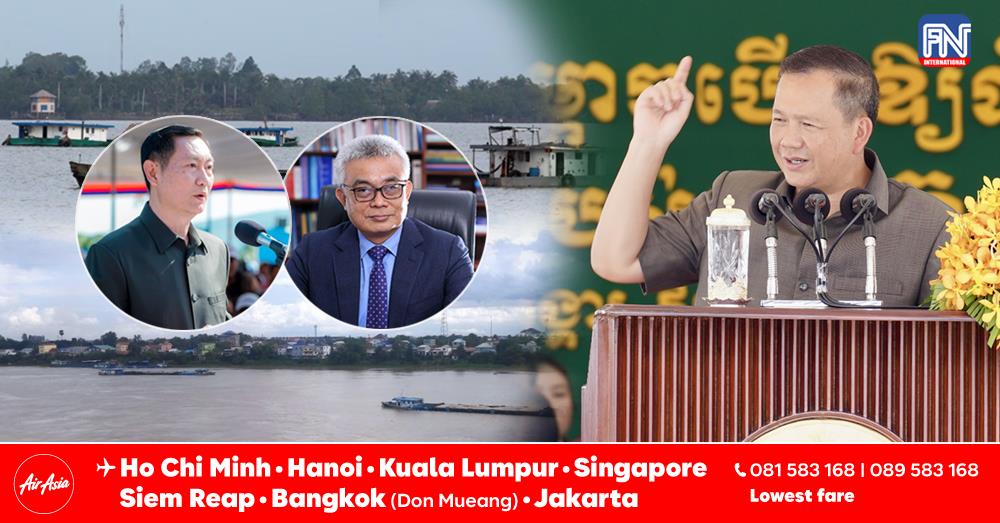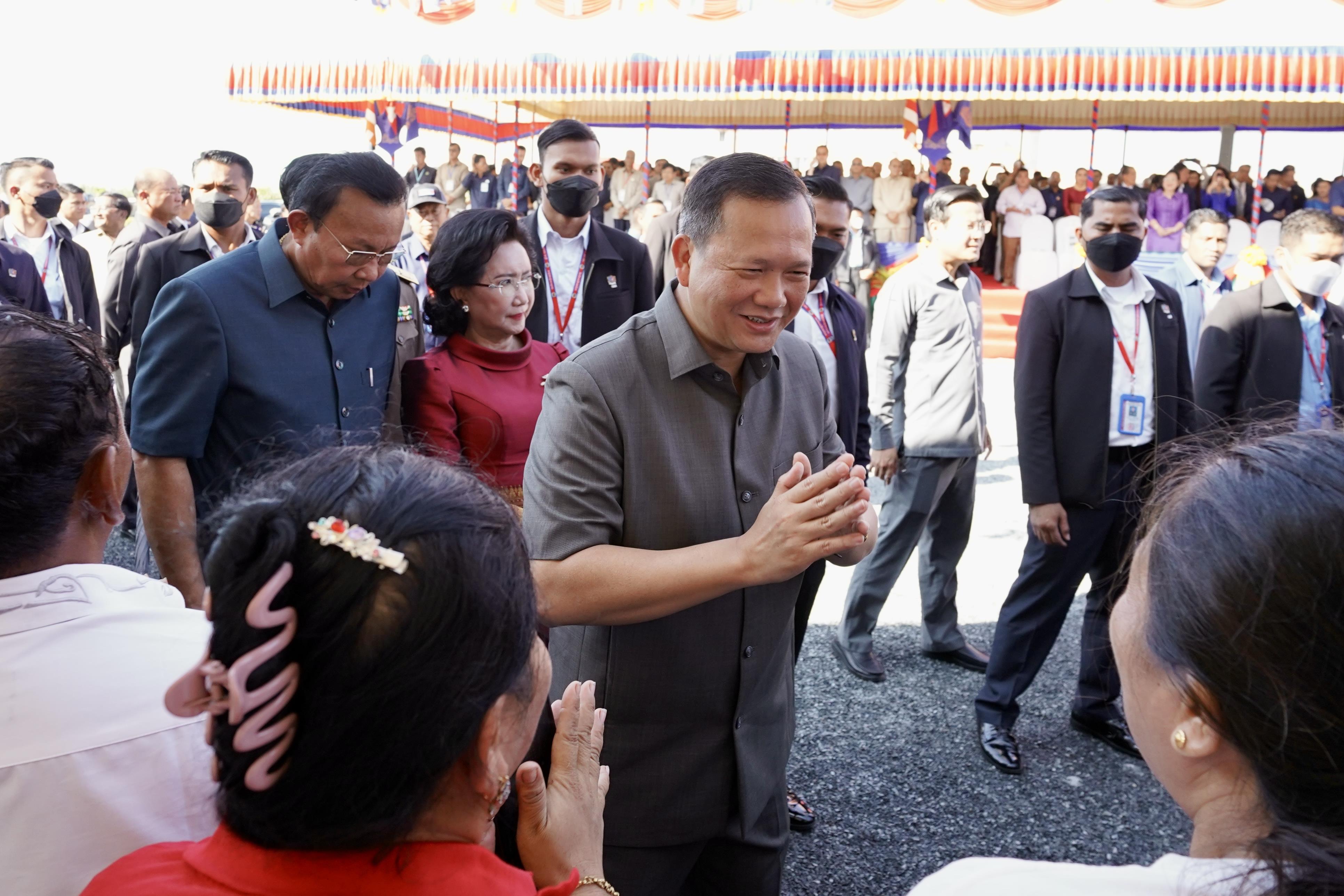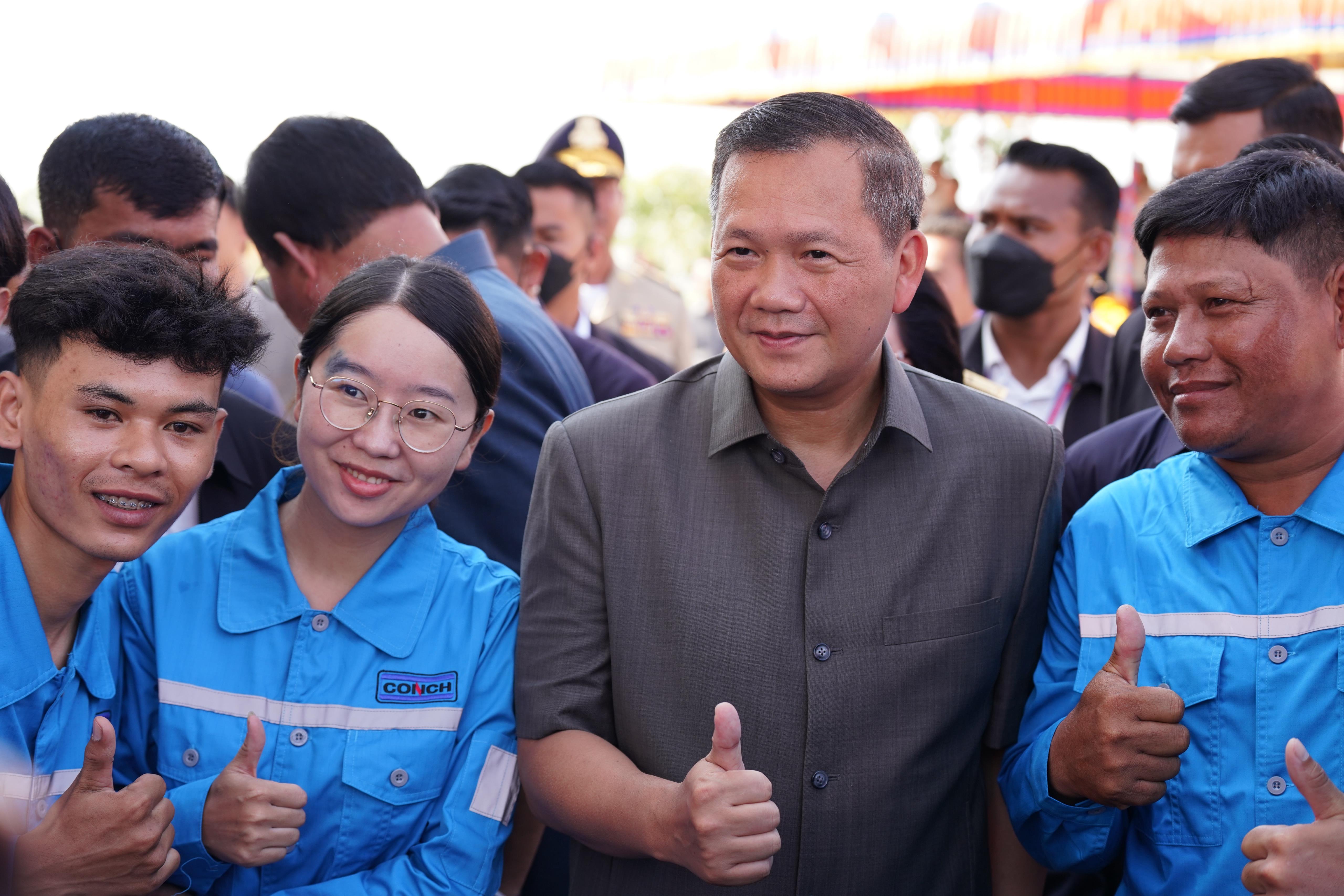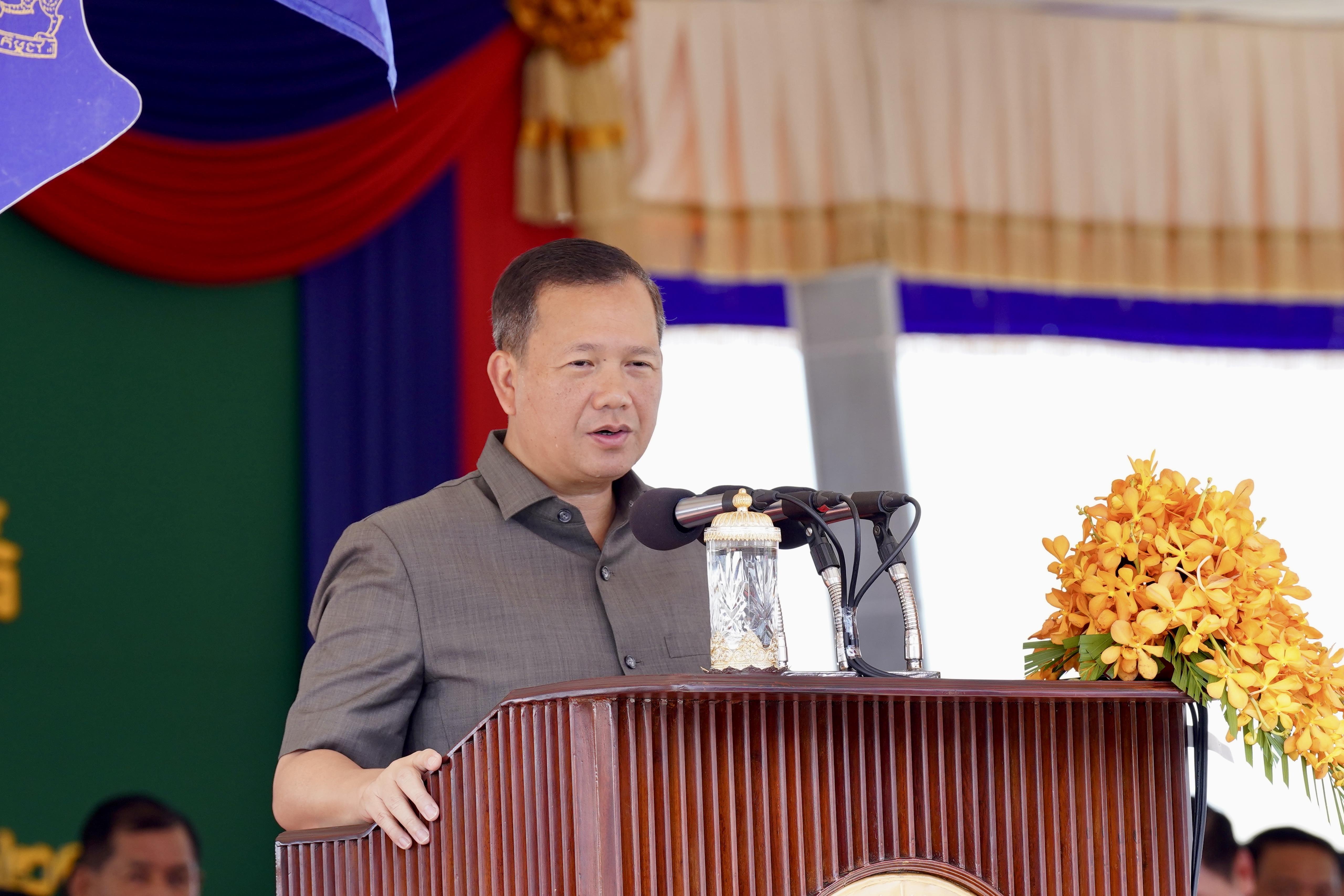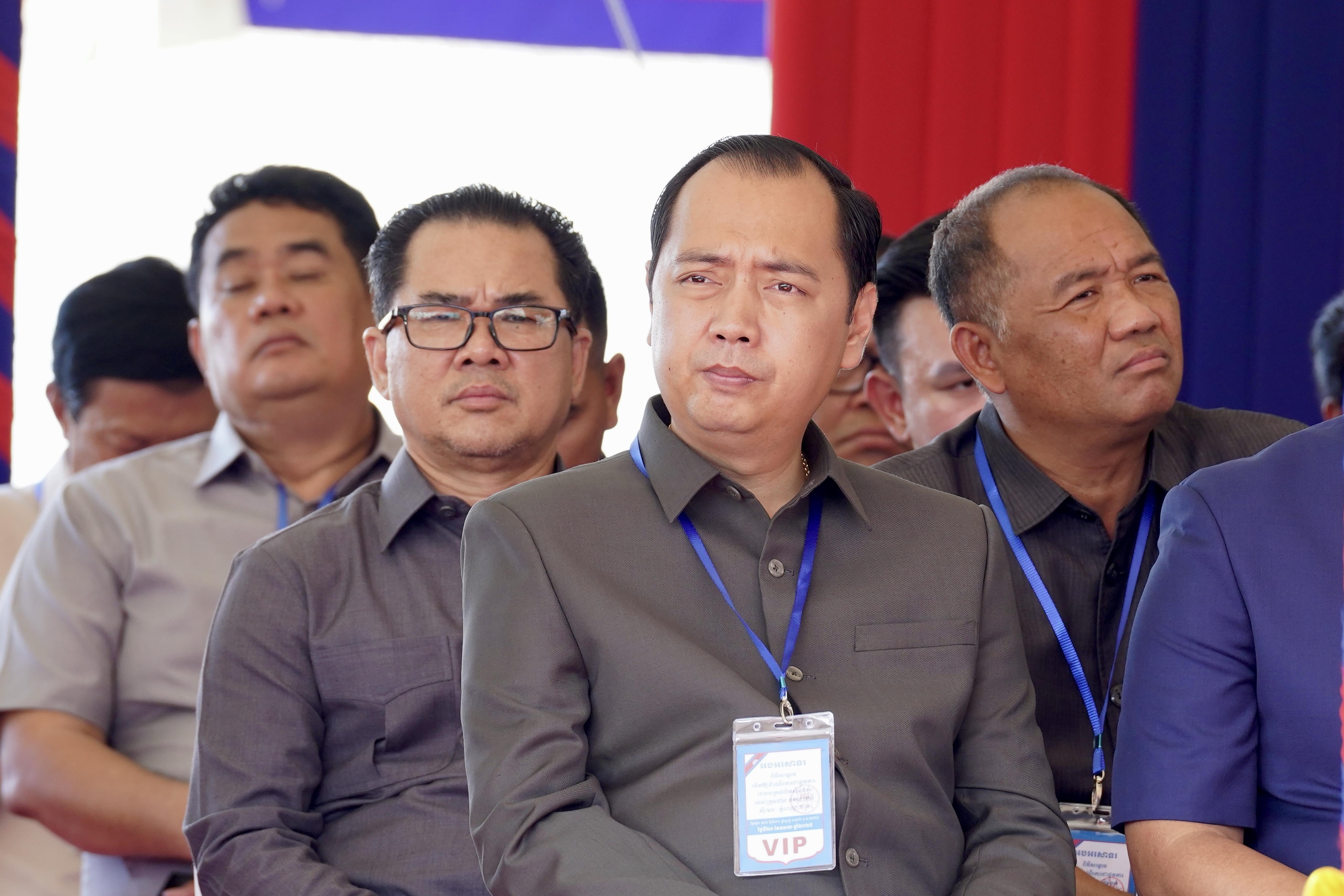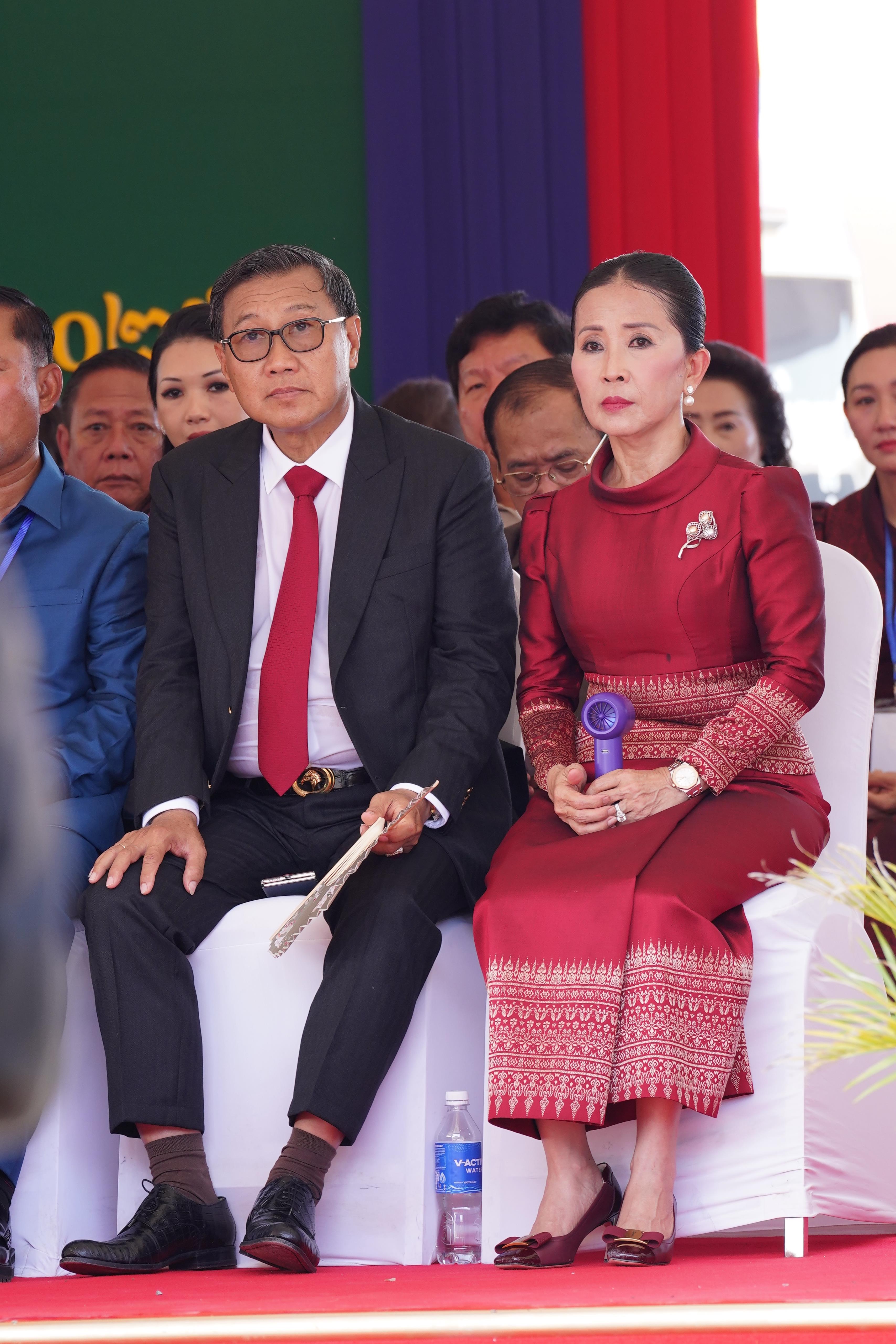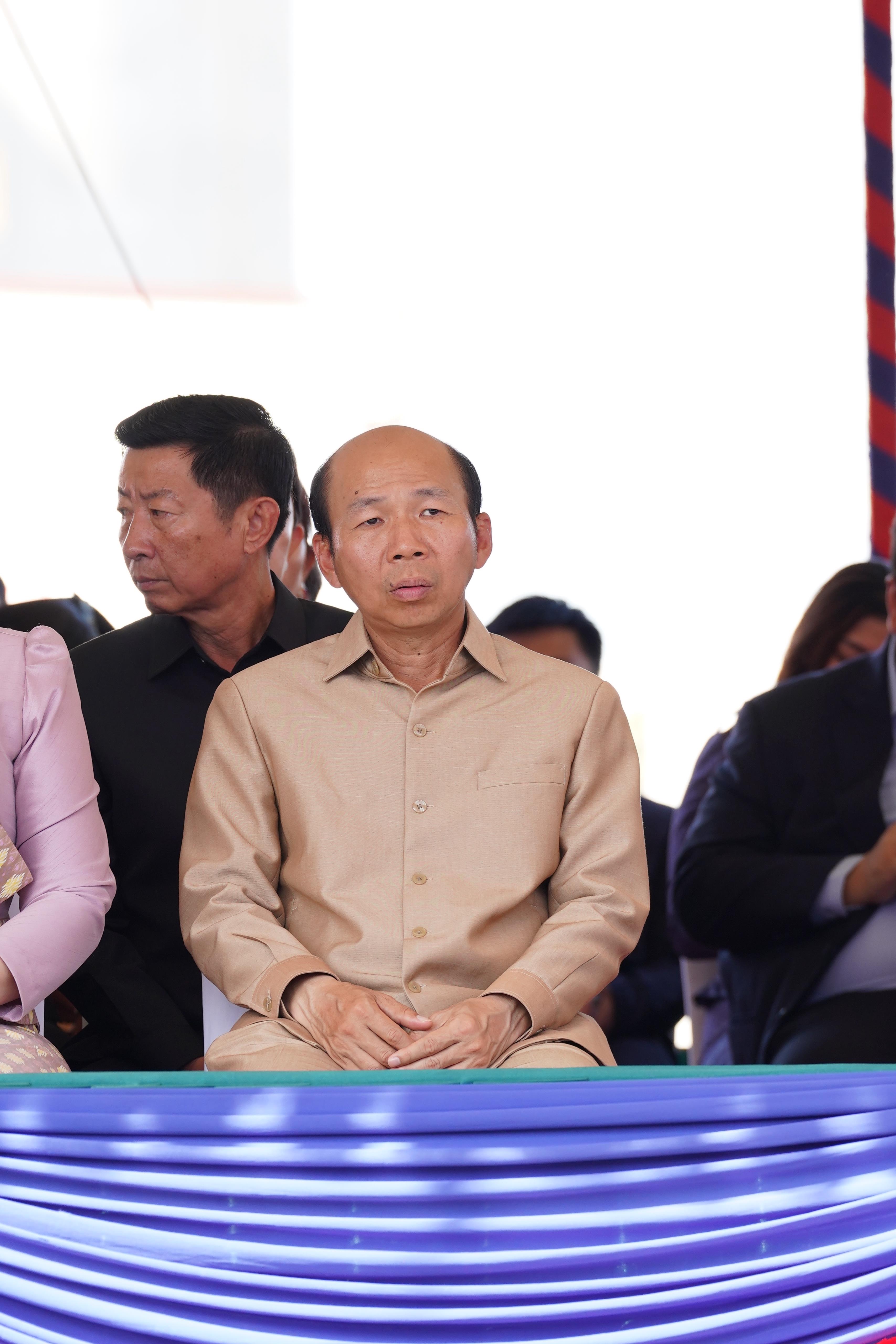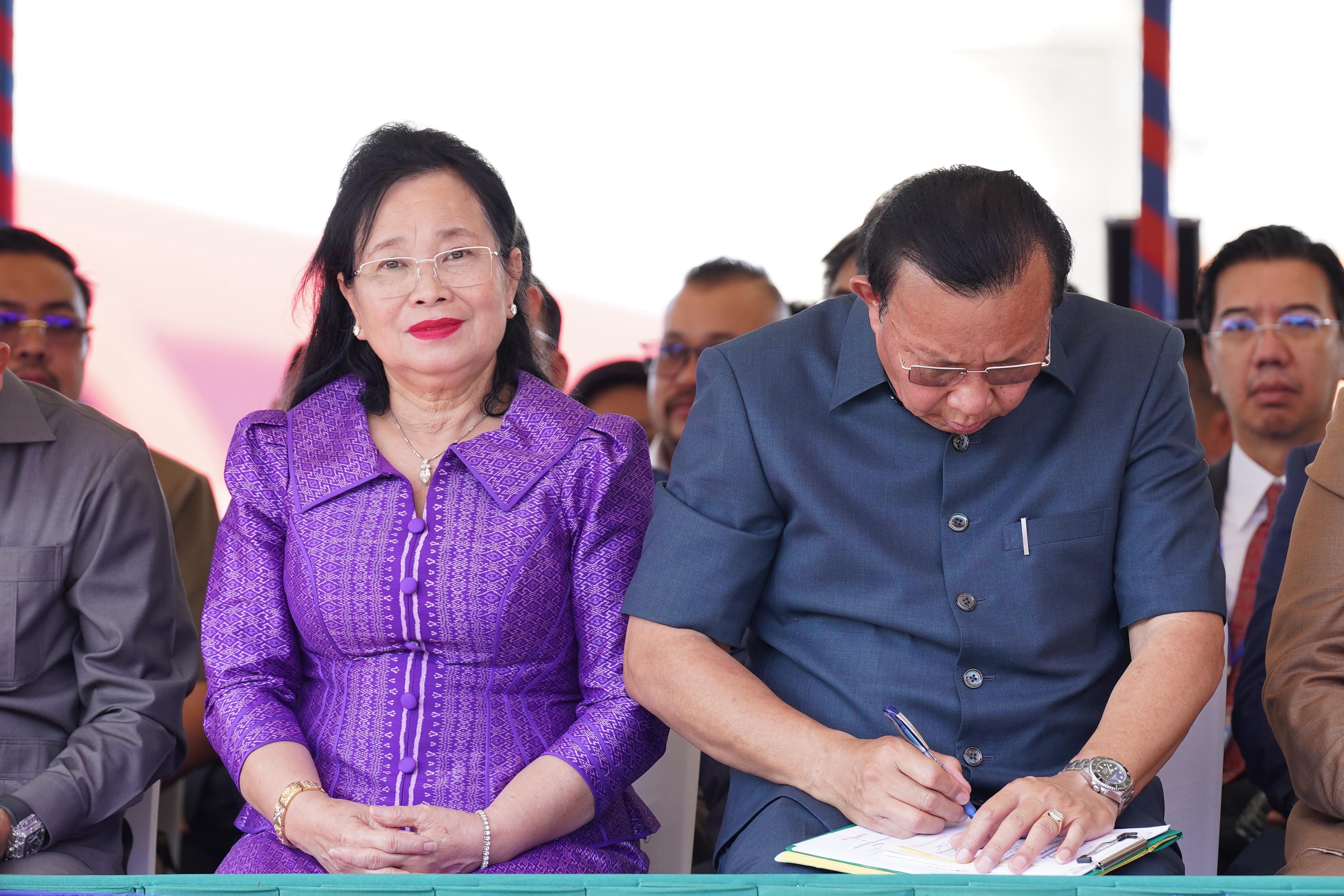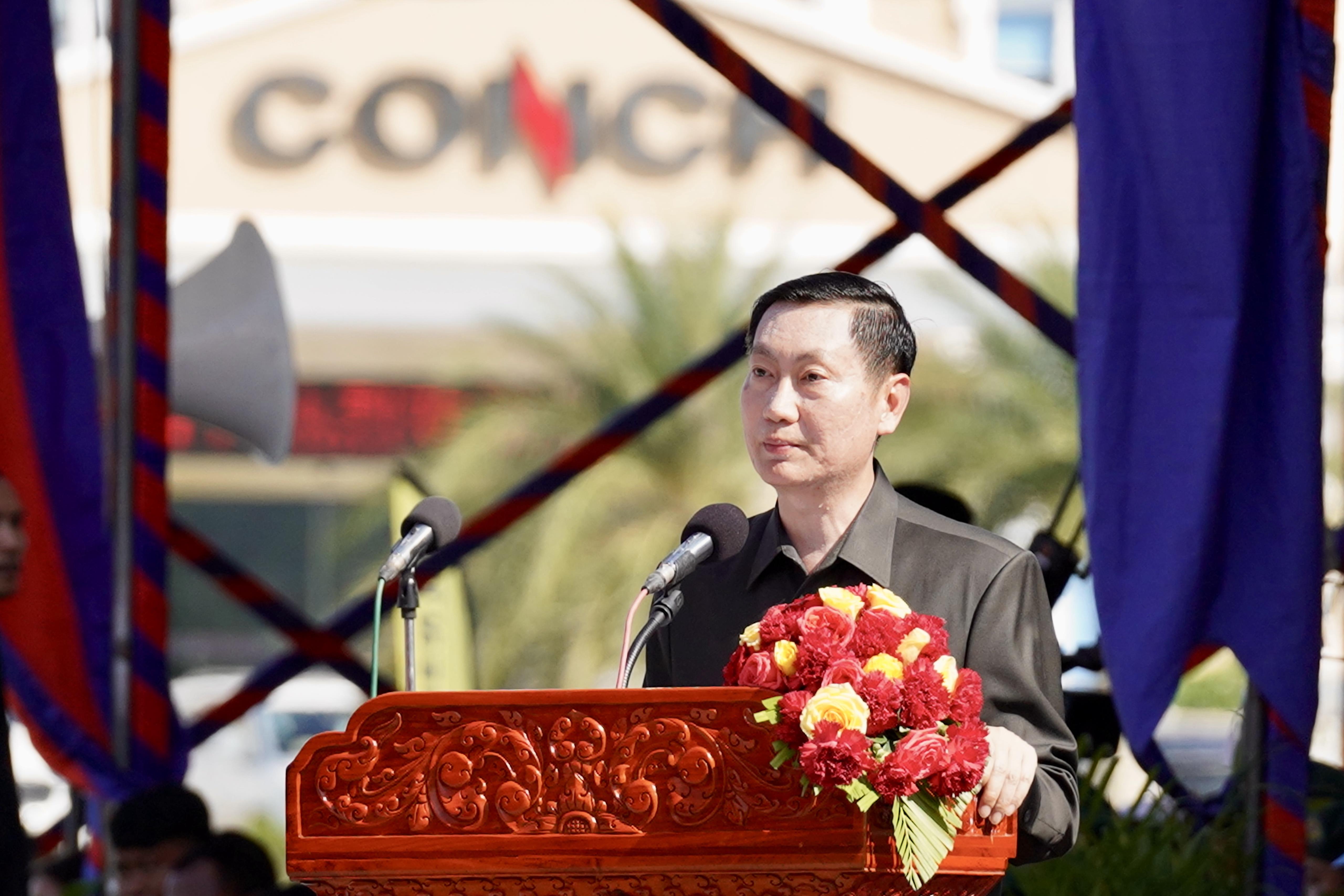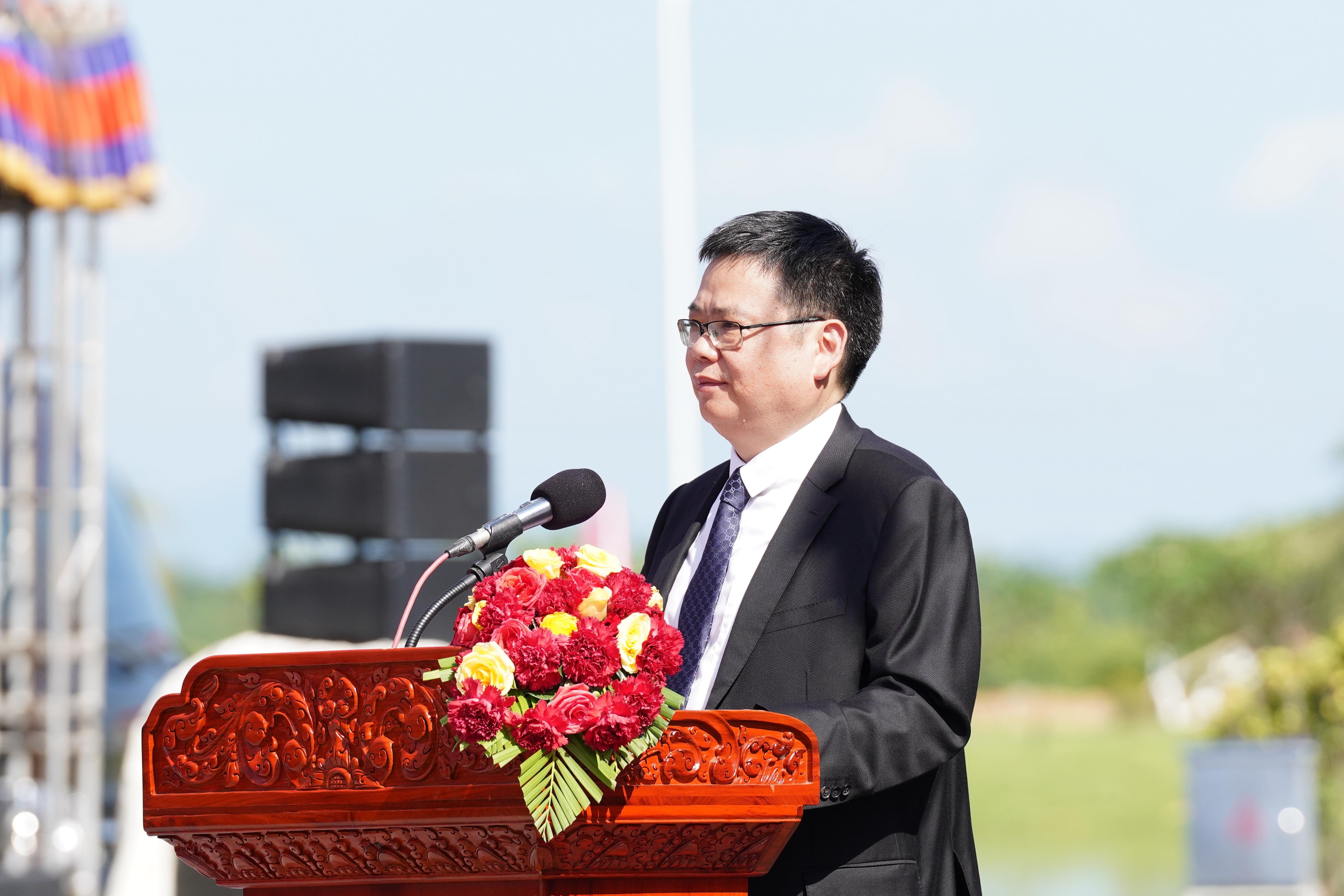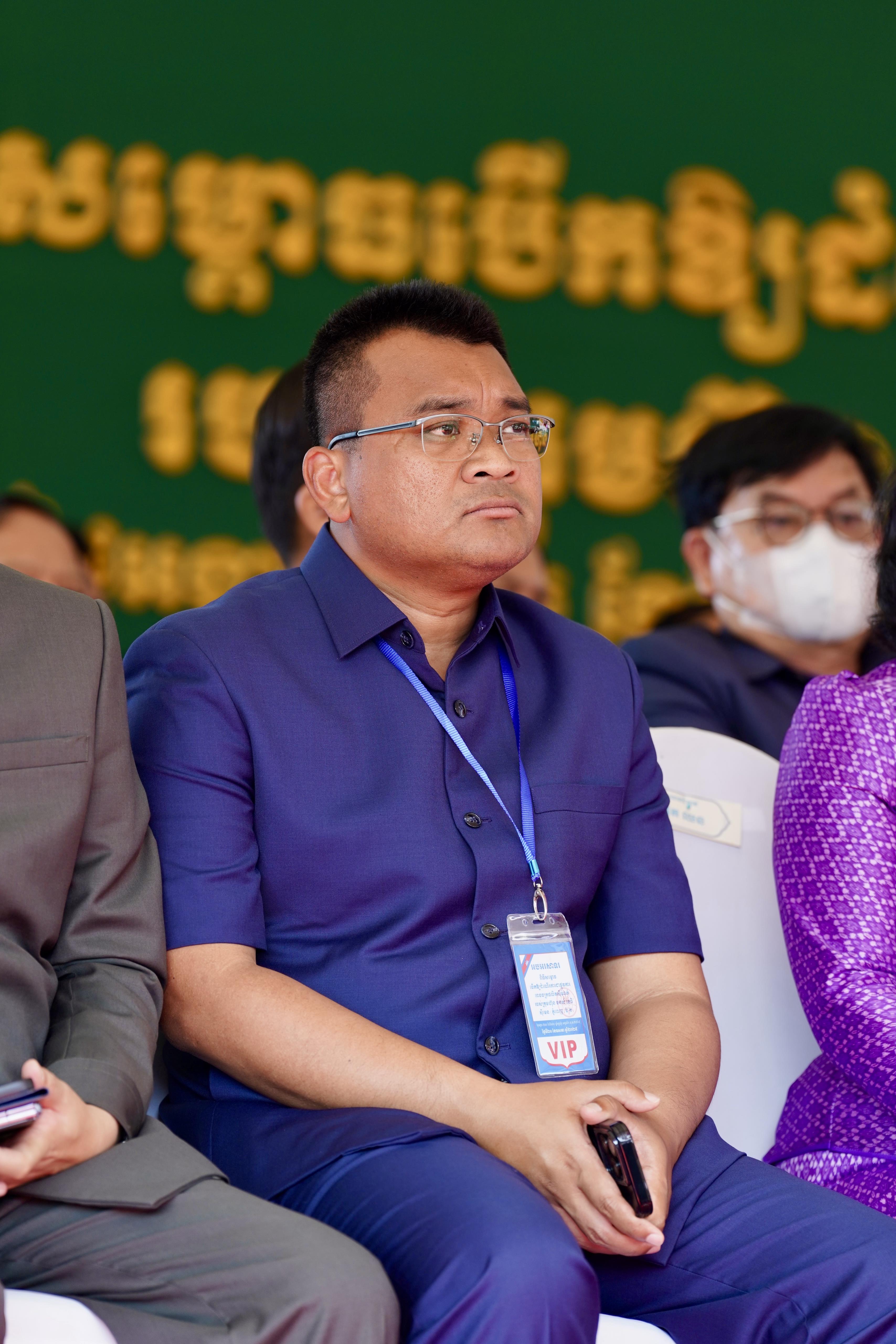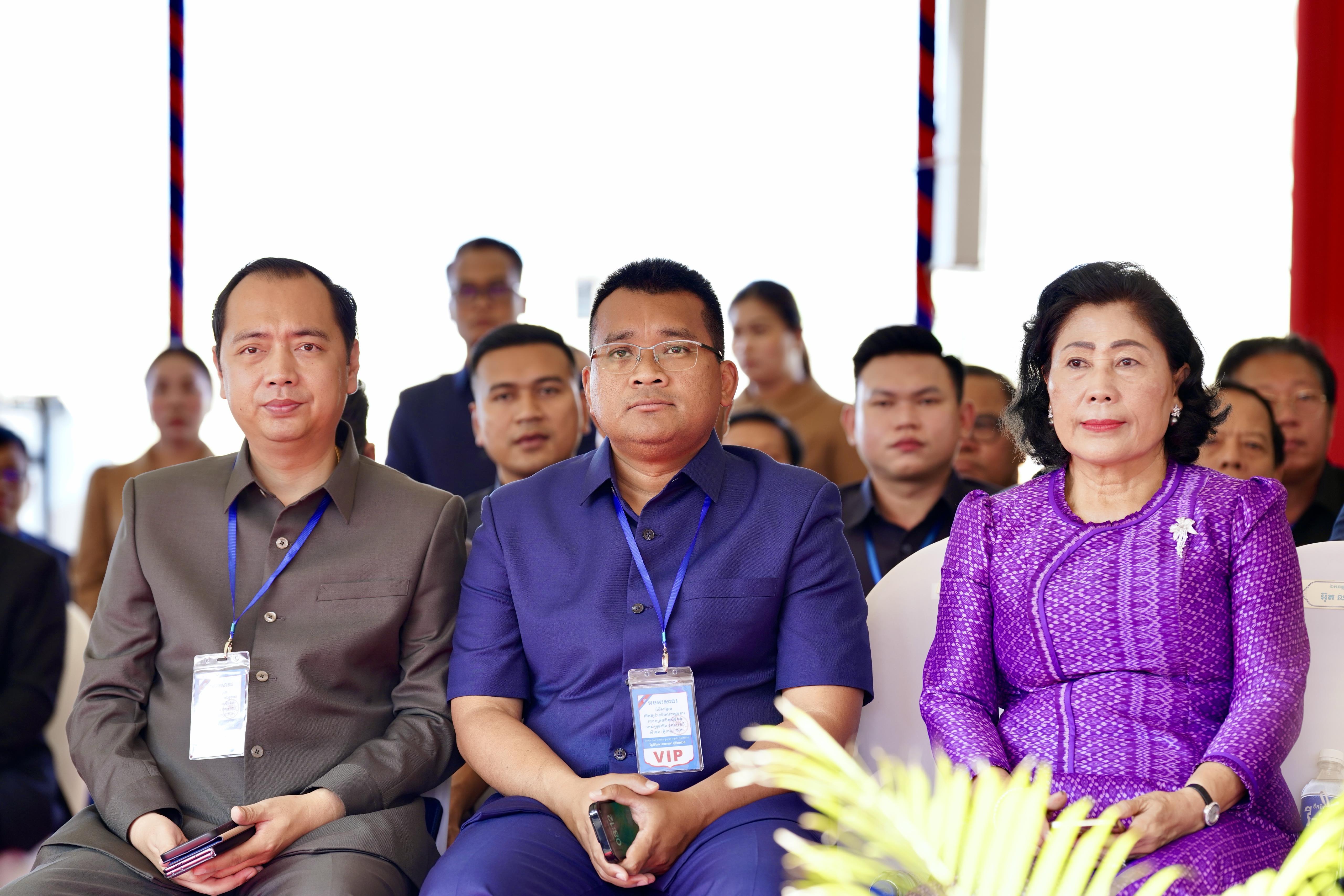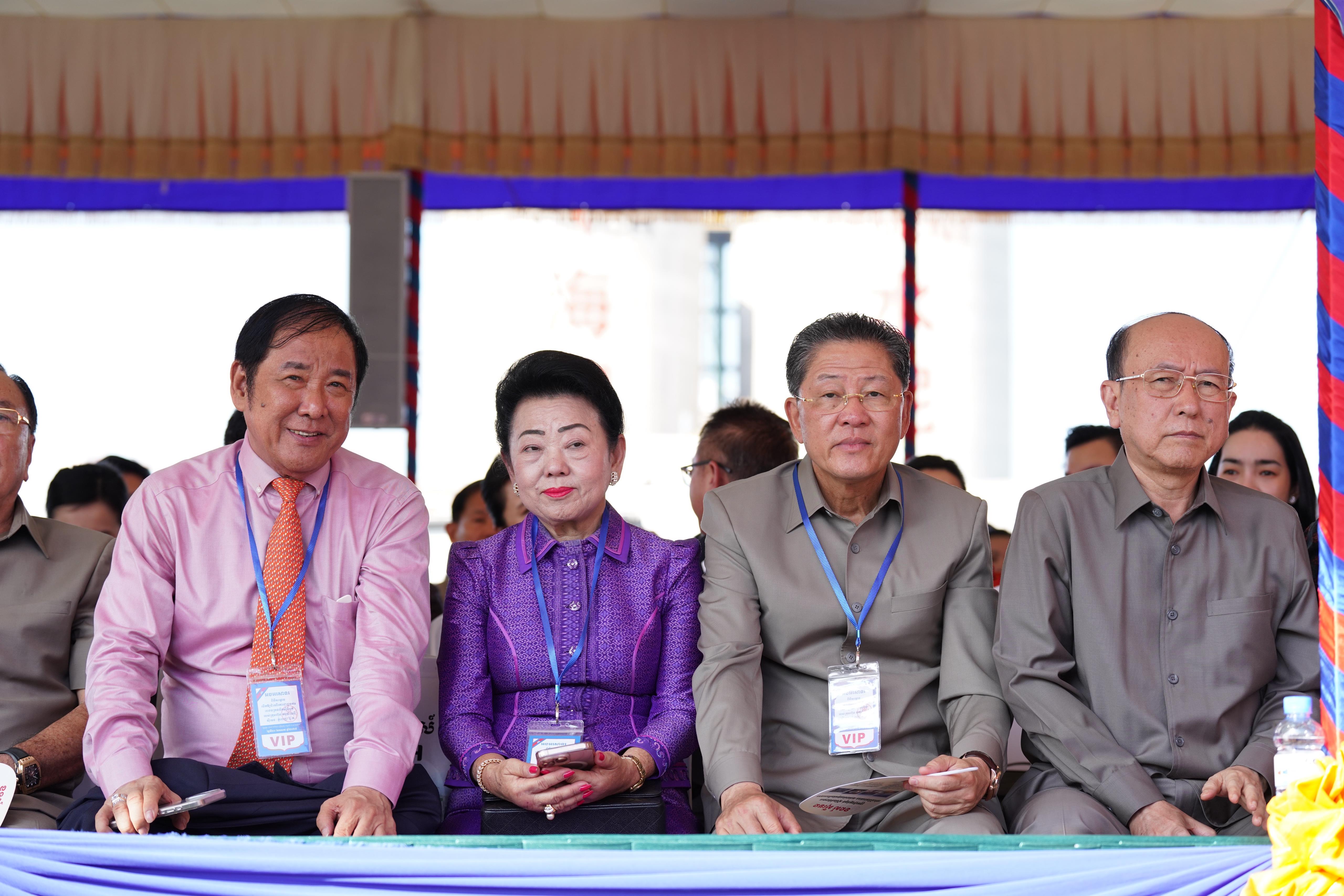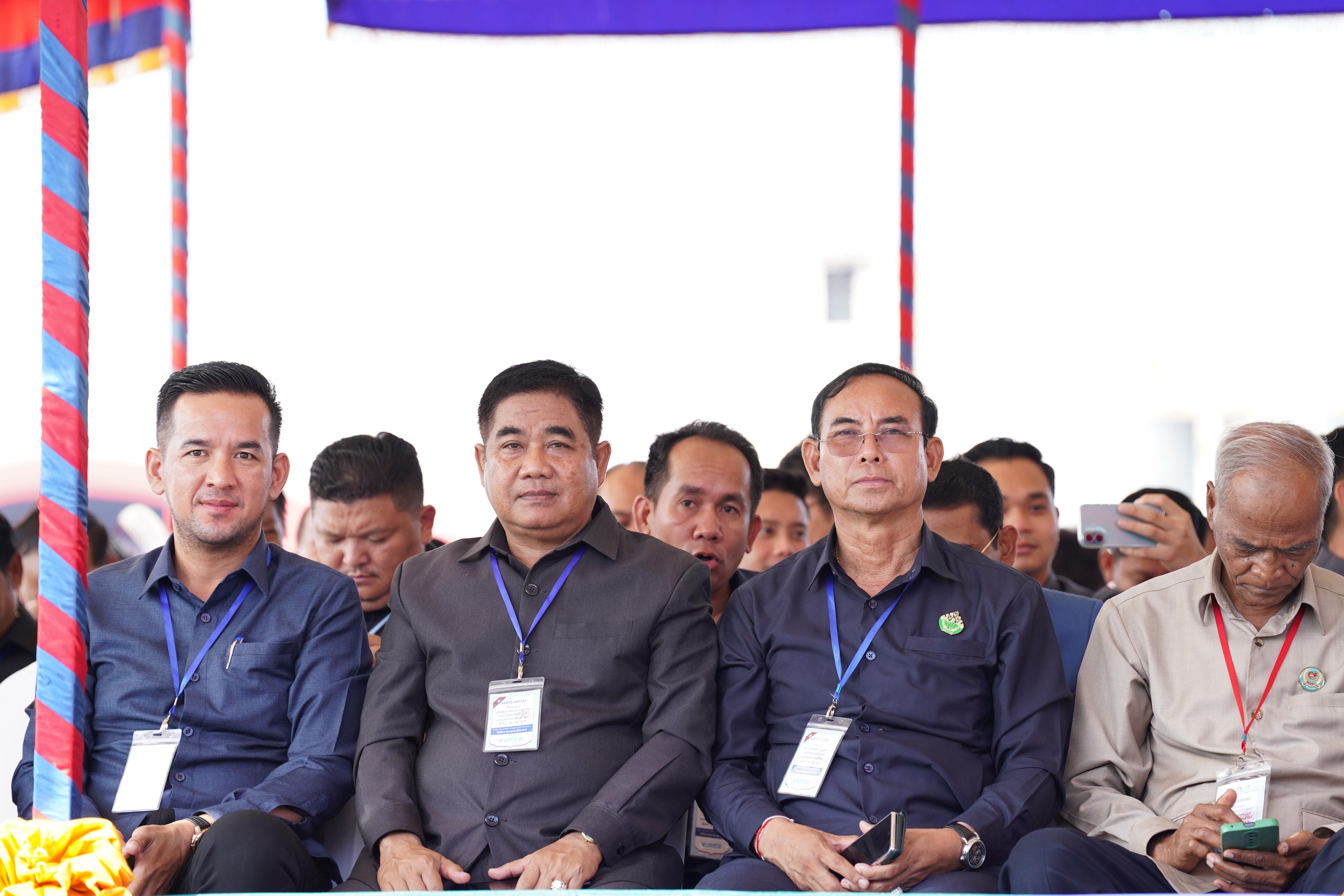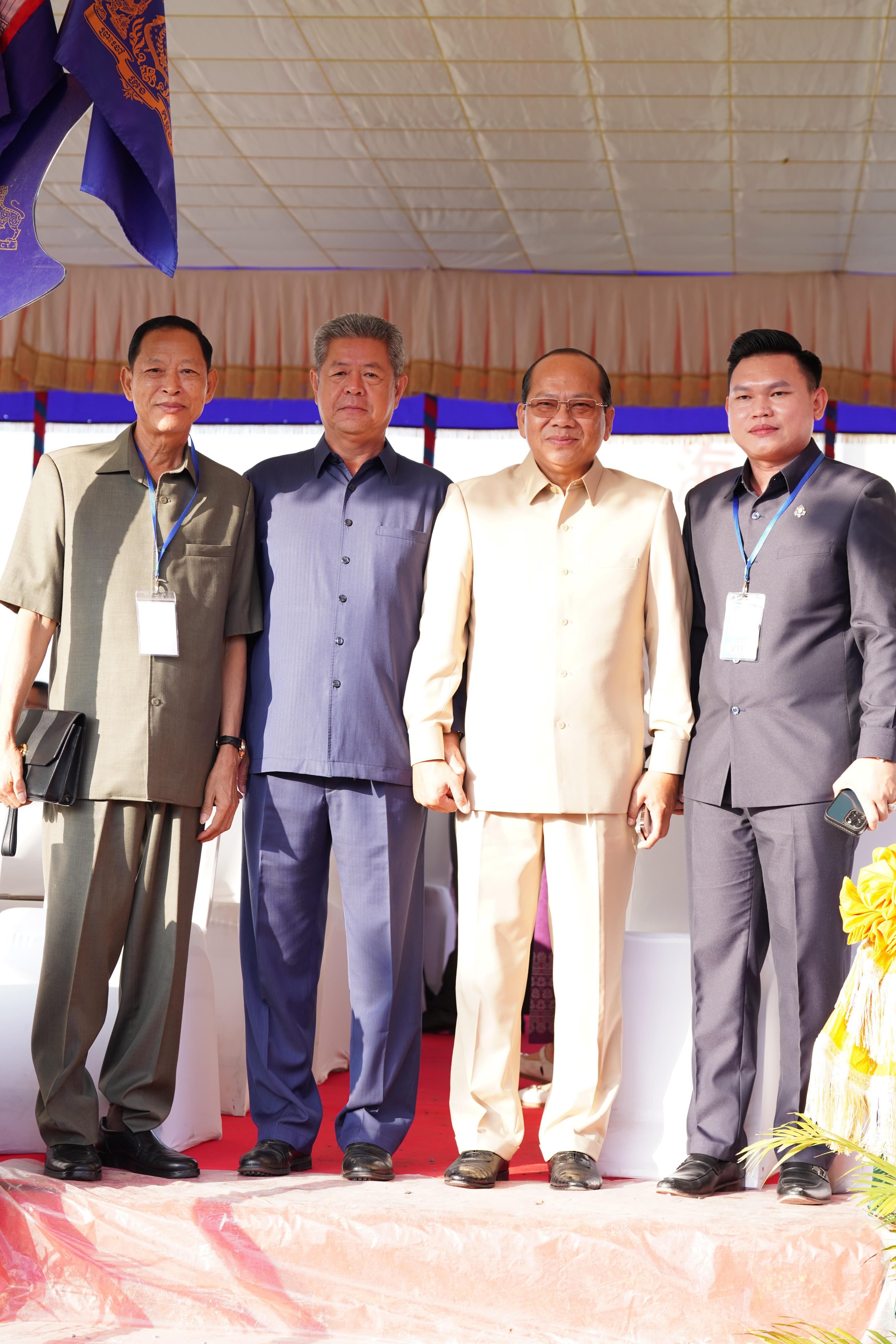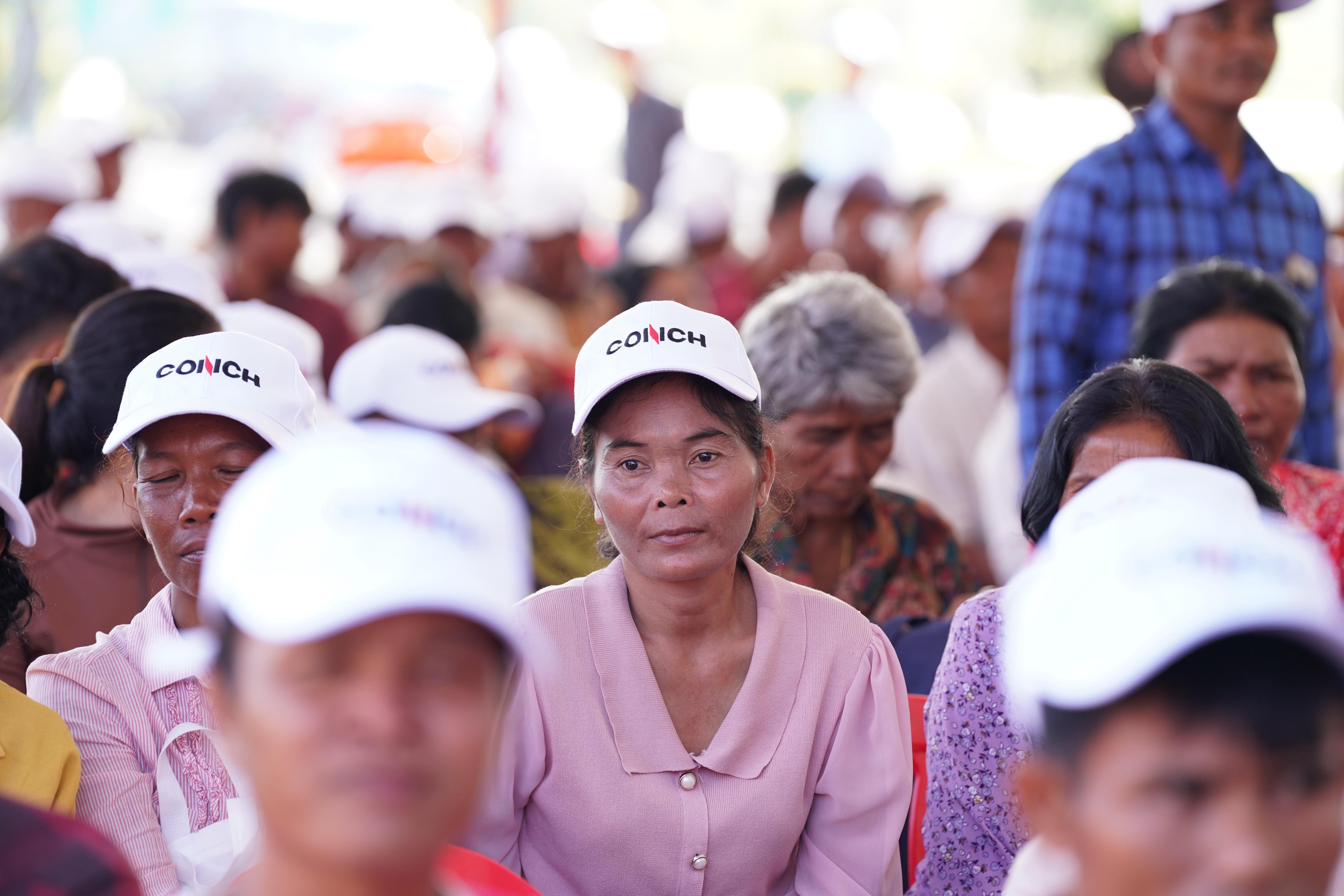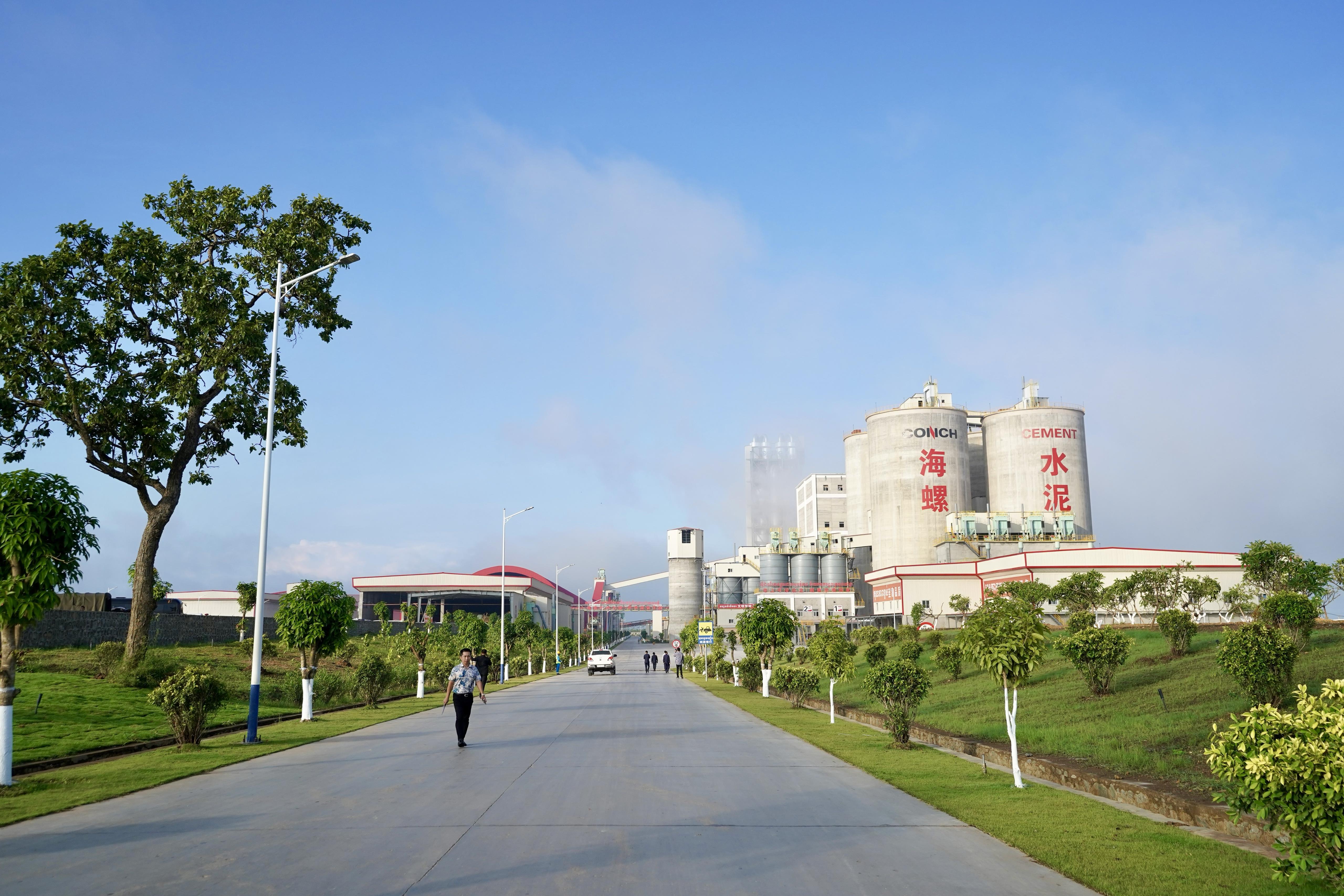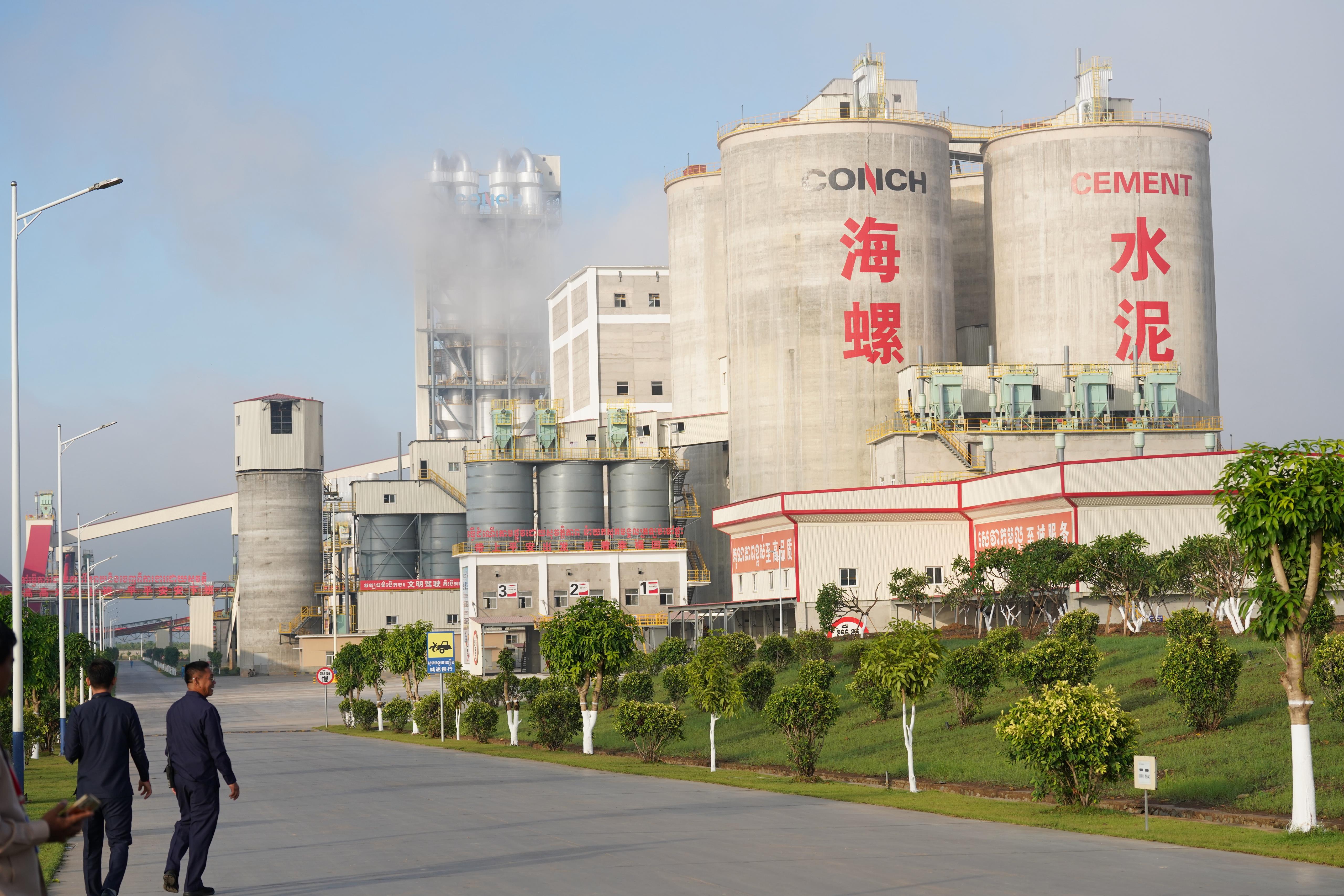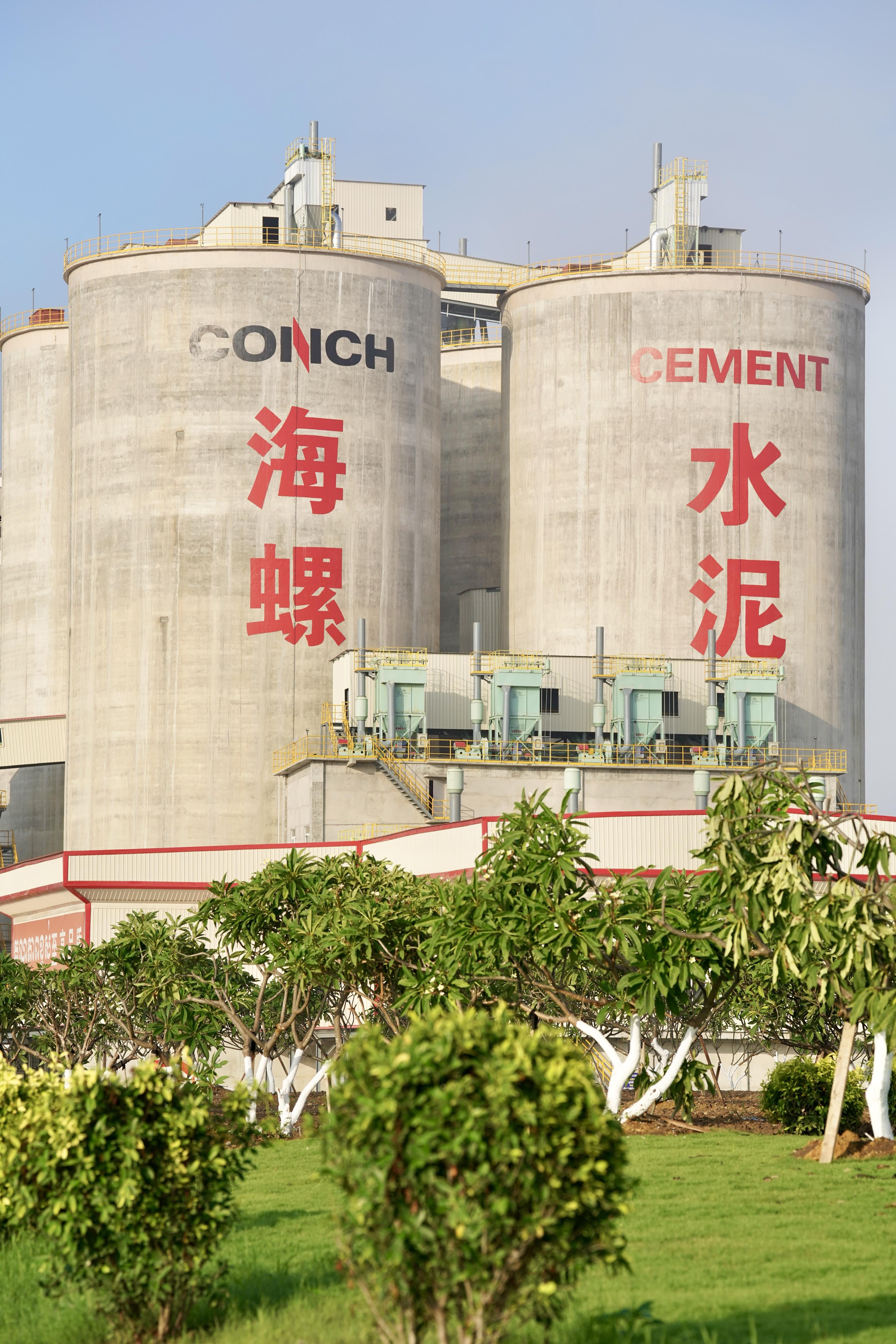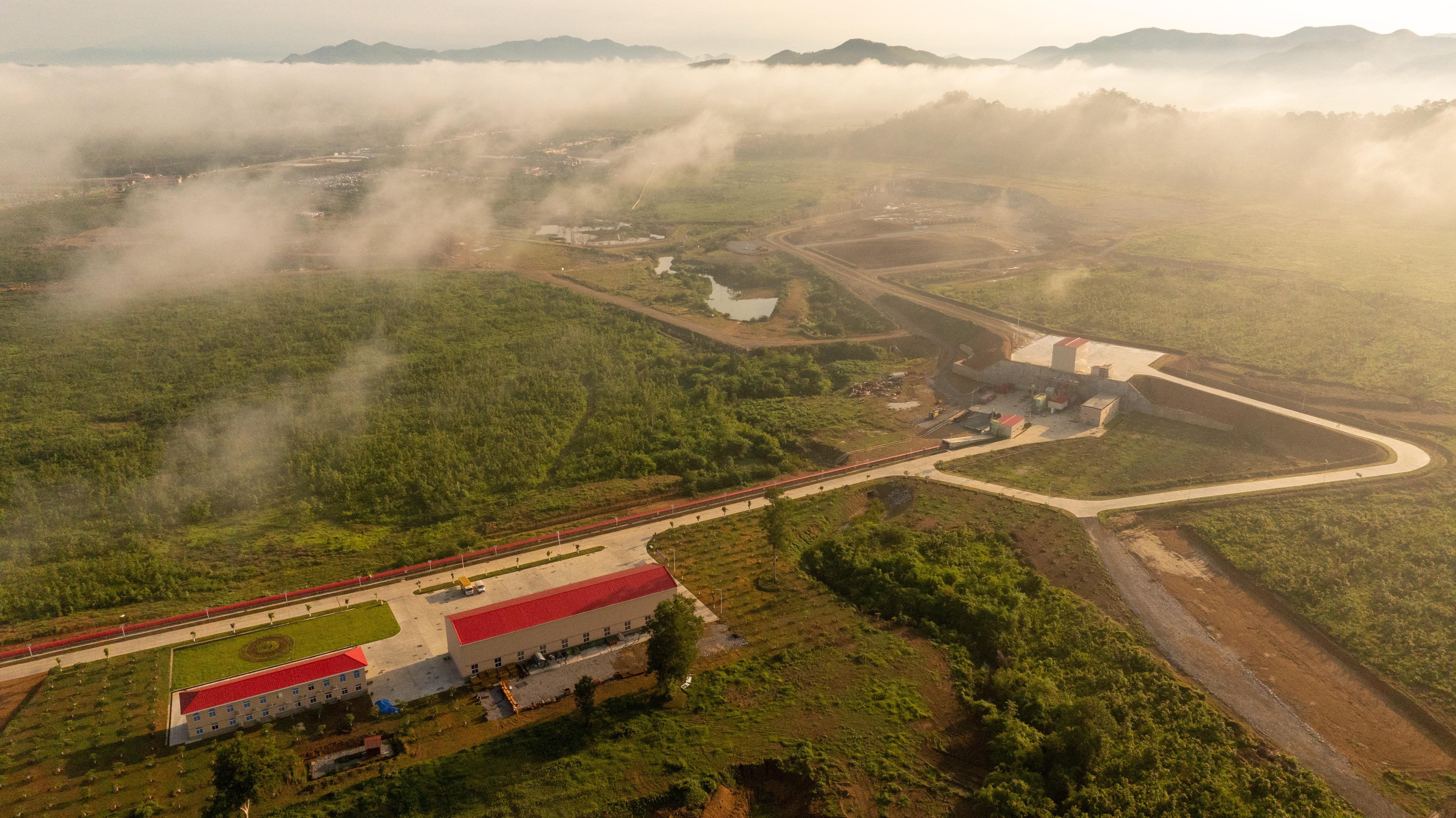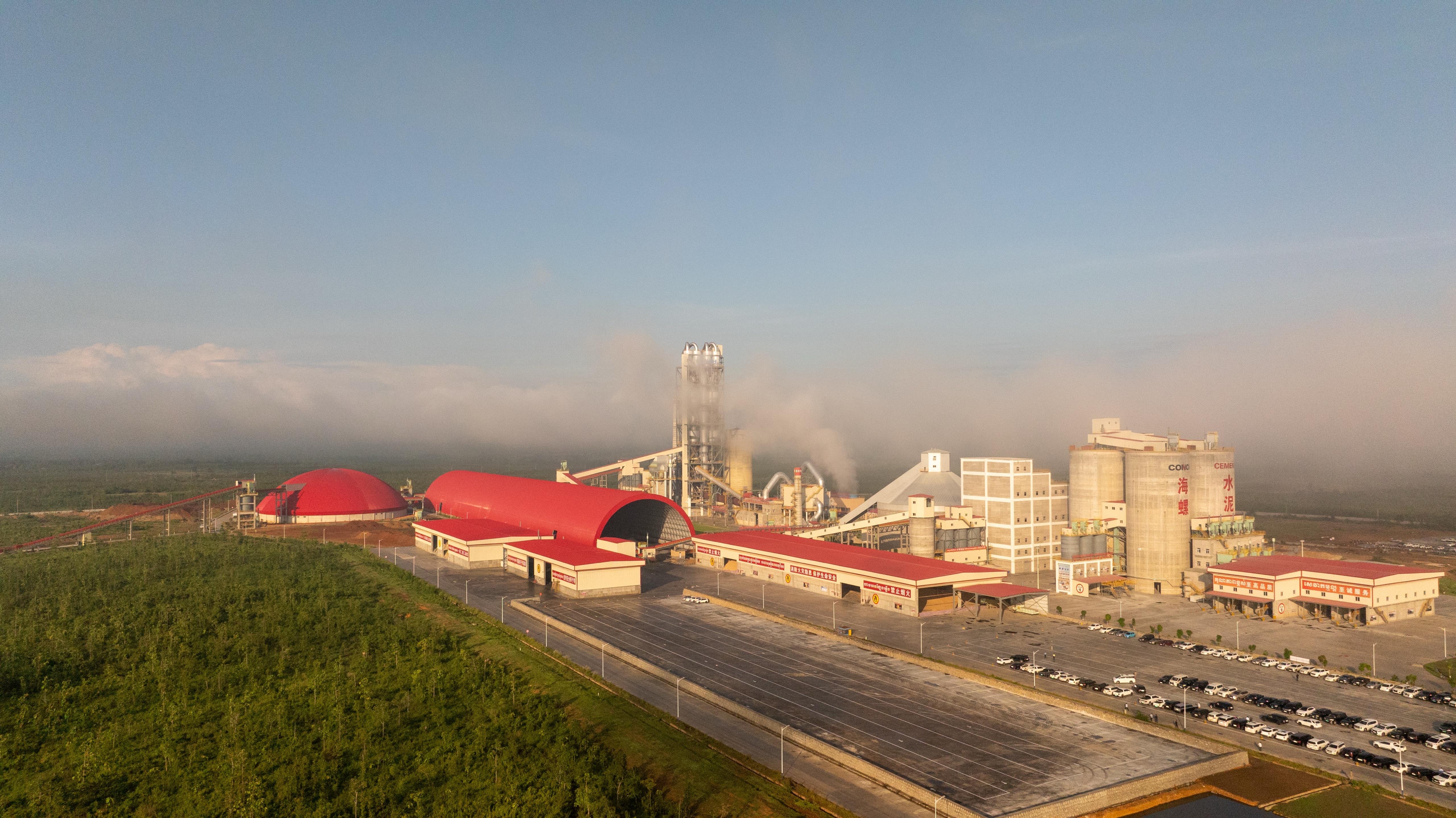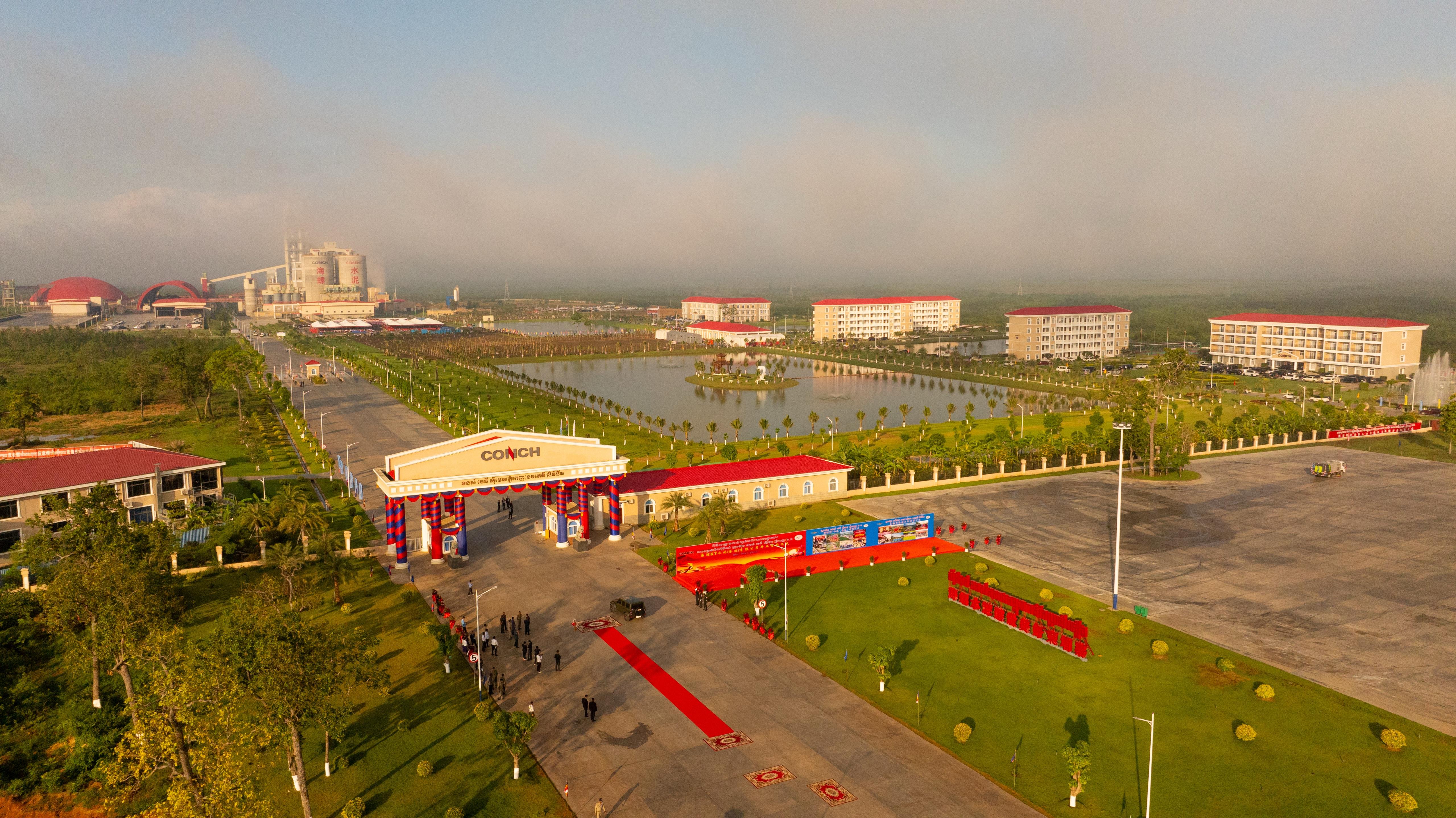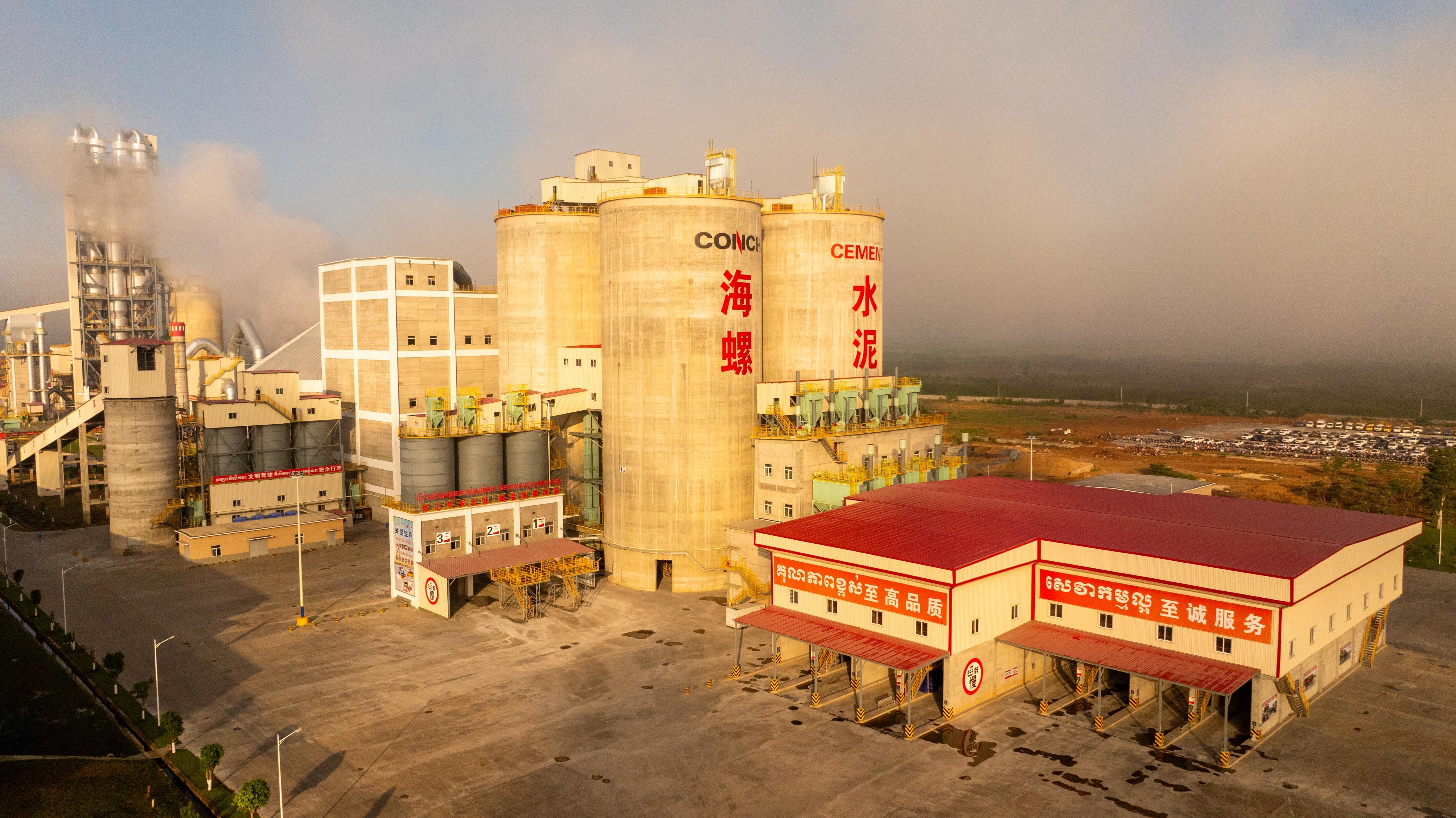(Kampong Speu): Cambodian Prime Minister Hun Manet instructed Minister of Economy and Finance Aun Pornmoniroth and Minister of Mines and Energy Keo Rottanak to examine the feasibility of extracting sand from the upper Mekong River in Kratie and Kampong Cham provinces, as a means to prevent downstream riverbank erosion.
The premier spoke on Tuesday (May 20) at an inauguration ceremony of the Conch KT Cement Factory in Aural District, Kampong Speu Province.
The premier recommended that both ministers, in collaboration with the private sector, conduct further studies into the potential for organised sand dredging in the upper Mekong River regions of Kratie and Kampong Cham. These upstream areas are known for significant sediment build-up, which has disrupted the natural flow of the river and contributed to severe erosion along lower sections—particularly around the Stung Trang area—raising serious concerns among local communities.
“I would like Minister Keo Rottanak and Minister Aun Pornmoniroth to convene an inter-ministerial meeting to evaluate and propose a suitable financing model—especially one based on a Public-Private Partnership (PPP) or similar forms of collaboration with the private sector. This would allow for joint efforts to ensure sustainability, without relying solely on state budgets or incurring public debt to fund sand dredging operations. We should identify the most appropriate model, given that this sand has economic value—it is simply located further upstream and entails higher transport costs,” the premier underscored.
Additionally, the premier instructed the Ministry of Mines and Energy and the Ministry of Water Resources and Meteorology to closely monitor and regulate the operations of sand dredging companies, in order to prevent unauthorised activities or improper extraction techniques that could lead to land collapses and negatively impact riverside communities.
Samdech Thipadei also noted that, over the past two years, the relevant ministries have investigated and brought numerous unlicensed companies into legal compliance, while enforcing several key regulatory measures.
=FRESH NEWS
